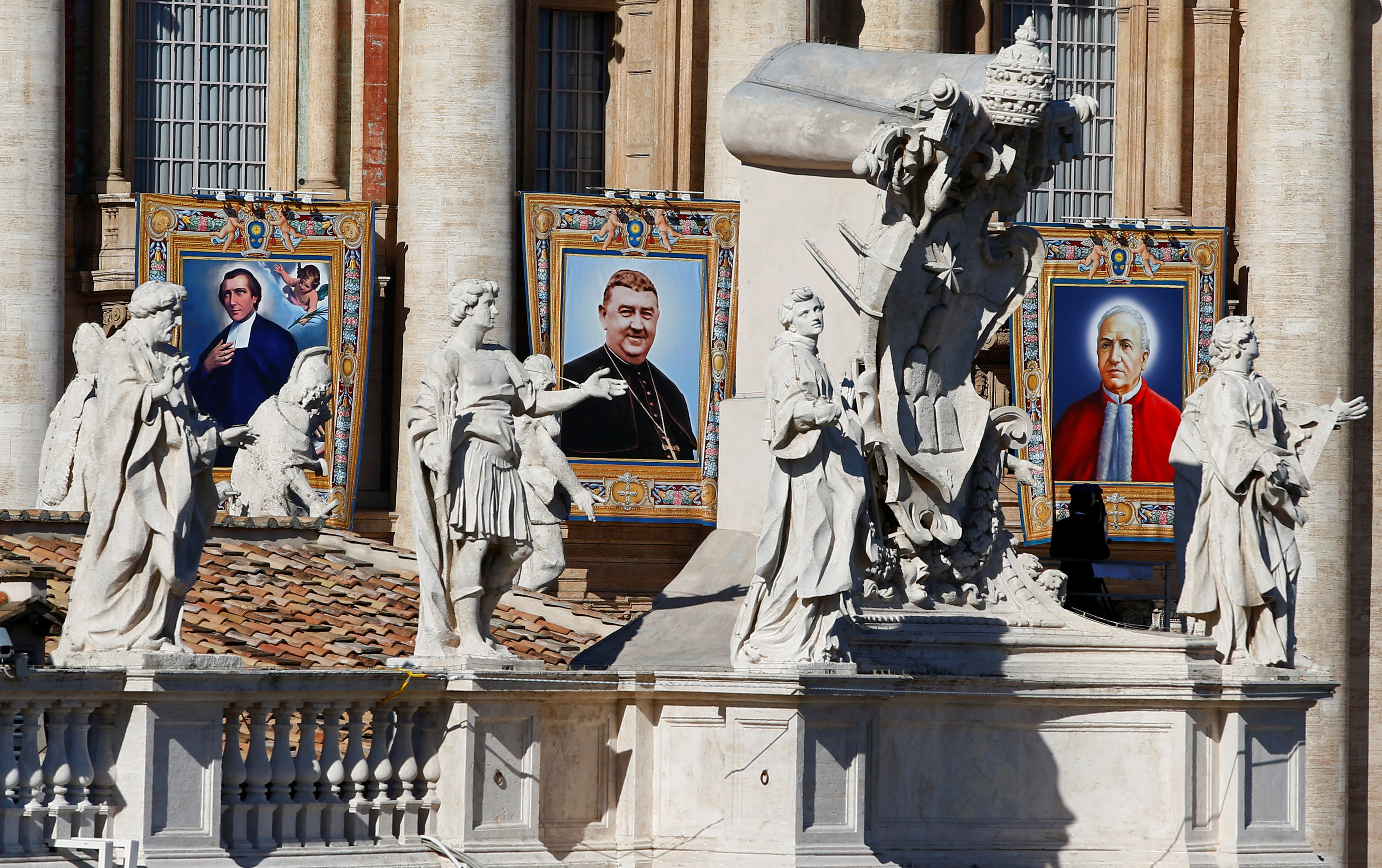Pope Francis' 7 new saints teach an important spiritual lesson
"There is only one sadness in this life, and that is to not be a saint"


A free daily email with the biggest news stories of the day – and the best features from TheWeek.com
You are now subscribed
Your newsletter sign-up was successful
This Sunday, Pope Francis canonized seven new saints. Canonization is an official declaration by the Holy See that a person is a saint. The people thus honored include José Sánchez del Río, a 14-year-old boy who refused to disown his faith under Mexico's anti-clerical government; José Gabriel del Rosario Brochero, the "gaucho priest" who went through enormous difficulties to minister to the poorest of the poor in 19th-century Argentina; and the Carmelite mystic Sister Elizabeth of the Trinity.
Catholicism's profusion of saints is one of the most beautiful and profound aspects of the faith, stretching as they do for millennia (the Old Testament's prophets are traditionally counted among the saints), in a chain linking every generation. The Church's doctrine of the "communion of the saints" holds that, as members of the Church, all Christians are held together by mystical bonds. Just like friends may pray for each other and support each other, so too can those who have preceded us in the Heavenly Kingdom pray for us and support us as our Christian brethren.
God so transcends us that it is impossible to understand him, Christians believe. But he loves us so much that he communicates who he is through countless images. For instance, Jesus is called "the perfect image of the Father." The beauty of nature is another such image, as are the lives of the saints. More prosaically, Christians are called to imitate Jesus in their daily lives, but what does it mean to be "Jesus" as a doctor, as an artist, as a politician, as a teacher, as a wife, a mother, a husband, a father, a friend? The saints provide powerful inspiration to Christians, in their daily life.
The Week
Escape your echo chamber. Get the facts behind the news, plus analysis from multiple perspectives.

Sign up for The Week's Free Newsletters
From our morning news briefing to a weekly Good News Newsletter, get the best of The Week delivered directly to your inbox.
From our morning news briefing to a weekly Good News Newsletter, get the best of The Week delivered directly to your inbox.
These beliefs have always been part of the Christian tradition, but there's another, more modern aspect to what Pope Francis did. The profiles of the seven canonized saints — male and female, ordained and lay, founders of institutions and secluded mystics — show the diversity of the Church.
This is a conscious effort. The late Pope John Paul II canonized more people than any pope — literally hundreds. This was his deliberate choice to highlight a classical, yet modernizing Christian doctrine: the universal call to holiness.
The image of the "saint" can be a bit foreboding. Many of the most popular saints have done extreme things — founded major religious orders, died as martyrs, suffered astonishing trials, or produced tremendous works of the human spirit.
Consciously or not, many Christians believe that "being a saint" is not for them. They believe in Jesus, but they believe that true, heroic faith is something reserved for the great and that they simply need to get along, praying as they can and trying to be nice to other people. If Jesus called "blessed" (another word for "saint") the "poor in spirit," then they are middle class in spirit. On more days than I'm comfortable to admit, I am certainly among their number.
A free daily email with the biggest news stories of the day – and the best features from TheWeek.com
If to be a saint only means loving others as Jesus loved his friends, then Jesus was abundantly clear that this is something every disciple is called to, and can do, with the help of God's Spirit. And this is what the Church's profusion of saints is there to remind us. Their conditions, their eras, their life stories, are all utterly different, but they all tell the same story. And they were still all-too-human sinners, warts and all. Not everyone is called to be a priest or nun, or to start a new movement, or to be tortured to death for the faith, but everyone is called to be a saint. Everyone is called to be an image of Jesus.
The 19th-century French mystic and writer Léon Bloy once said, "There is only one sadness in this life, and that is to not be a saint." For the Church, every day is a reminder of this truth.
Pascal-Emmanuel Gobry is a writer and fellow at the Ethics and Public Policy Center. His writing has appeared at Forbes, The Atlantic, First Things, Commentary Magazine, The Daily Beast, The Federalist, Quartz, and other places. He lives in Paris with his beloved wife and daughter.
-
 What are the best investments for beginners?
What are the best investments for beginners?The Explainer Stocks and ETFs and bonds, oh my
-
 What to know before filing your own taxes for the first time
What to know before filing your own taxes for the first timethe explainer Tackle this financial milestone with confidence
-
 The biggest box office flops of the 21st century
The biggest box office flops of the 21st centuryin depth Unnecessary remakes and turgid, expensive CGI-fests highlight this list of these most notorious box-office losers
